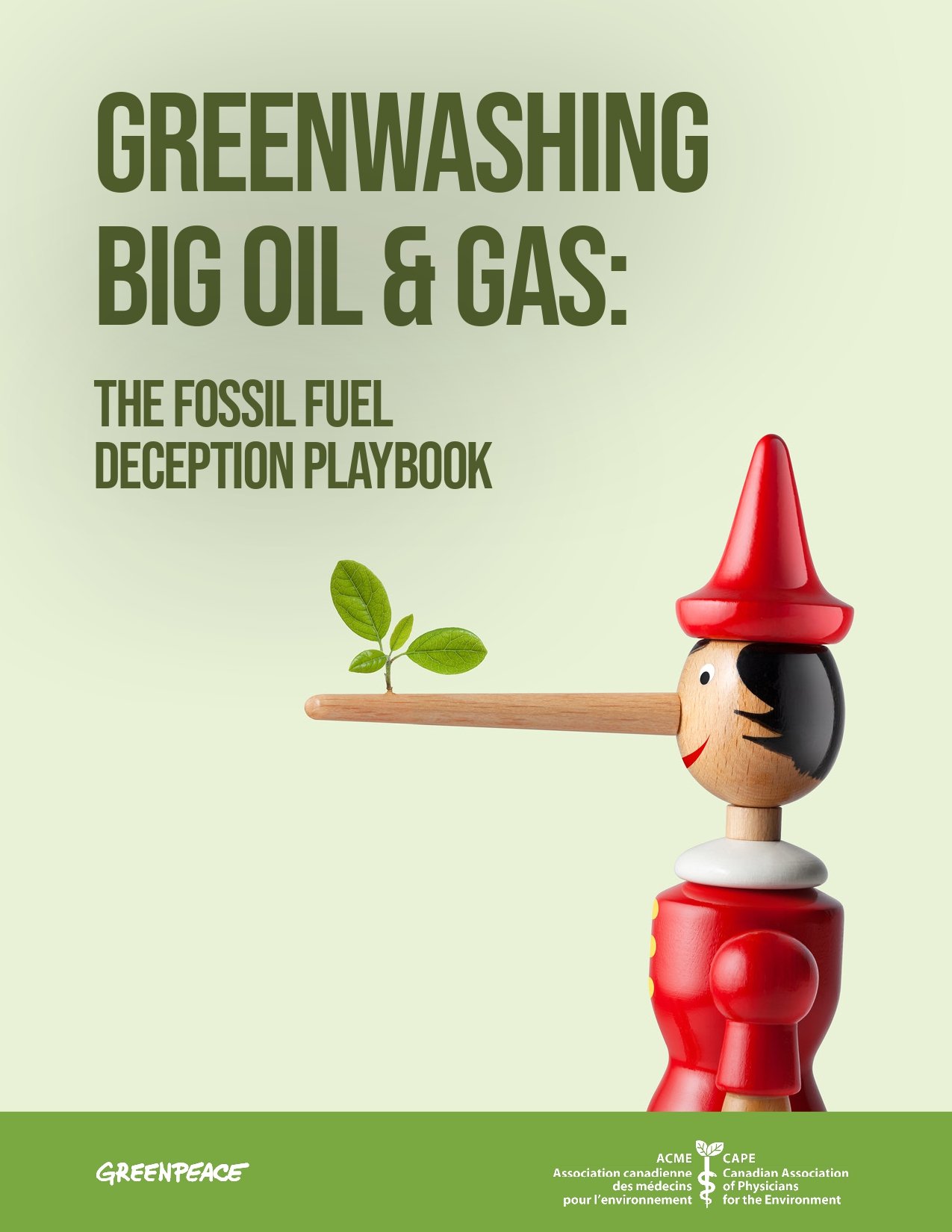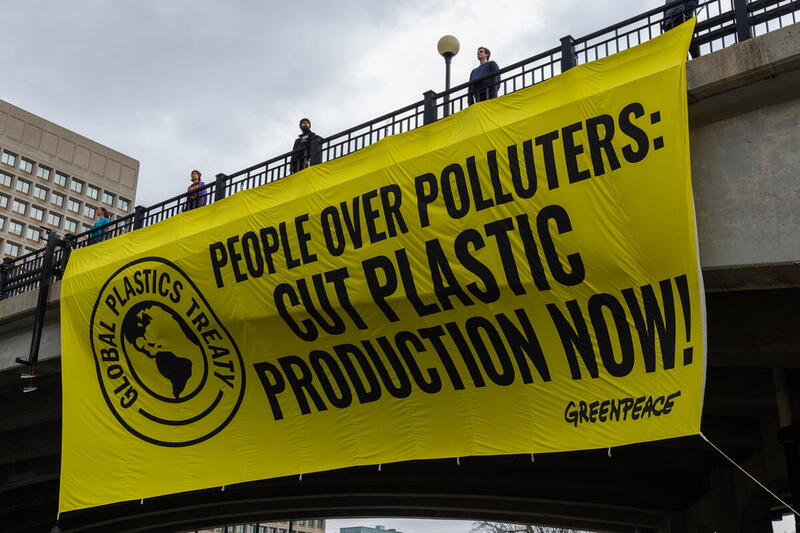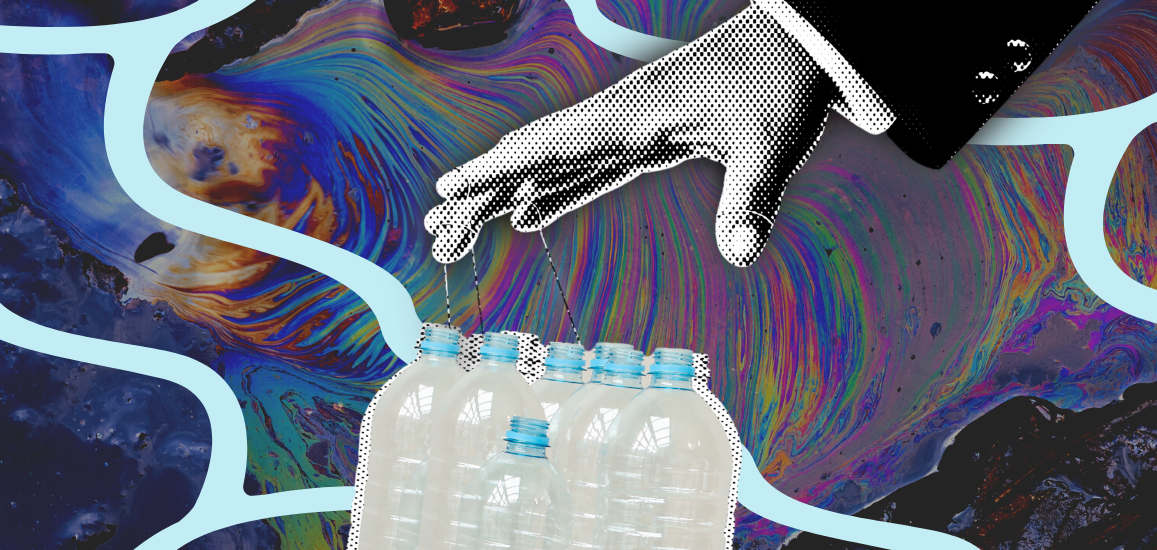23 October 2018 (MONTRÉAL) – Today Greenpeace released a report identifying several fast moving consumer goods (FMCG) corporations as predominant forces behind the throwaway economic model driving the plastic pollution crisis. A survey conducted on 11 members of the sector revealed that none have plans to curb production and marketing of single-use plastics, while the solutions they are exploring will only perpetuate the problem.
The report, ‘A Crisis of Convenience: The corporations behind the plastics pollution pandemic’, focuses on 11 of the biggest FMCG companies: The Coca-Cola Company, Colgate-Palmolive, Danone, Johnson and Johnson, Kraft Heinz, Mars, Nestlé, Mondelez, PepsiCo, Procter & Gamble and Unilever. 161 million tons (or 146 million metric tonnes) of packaging materials were produced in less than 6 months in 2015 by the whole packaging sector. Plastic packaging now accounts for nearly half of all plastic generated globally (page 8).
The four companies that reported the highest sales of single-use plastic products (Coca Cola, PepsiCo, Nestlé and Danone) were also the top four brands identified in a global Break Free From Plastic brand audit report unveiled two weeks ago following 239 cleanups in 43 countries. According to a 2017 survey, The Coca-Cola Company, PepsiCo and Nestlé sold that year between 1.5 and nearly 3 million metric tonnes of single-use plastic (refer to graphic #1, p 11).
“Our report reveals that the whole FMCG sector has failed to take responsibility for the plastic pollution crisis and is instead trying to maintain the status quo,” said Sarah King, Head of Oceans & Plastics campaign with Greenpeace Canada. “Instead of making strong commitments that start to address their contribution to plastic production, consumption, waste and ultimately pollution, these companies are allowing for an increased use of single-use plastic in the future.”
The survey looked to determine the degree to which FMCG commitments, actions and performance are addressing the environmental and social impacts of their plastic packaging and waste.
Key findings:
|
“The business model of these corporations is based on the assumption that ultimately all plastic packaging can, and will, be collected and recycled into new packaging or products. We have not seen this to be the case and if production of disposable plastic stays the same or grows as projected, there is no way we can ever recycle our way out of this massive waste and pollution problem plaguing our communities and ecosystems.” added King.
The FMCG sector represents one of the largest industries worldwide. Most FMCG companies are growing at between 1 – 6% each year. [1] If current trends continue, their use of single-use plastic will increase in parallel.
Greenpeace calls upon the above mentioned FMCGs worldwide to be transparent, to commit to reduction, to urgently eliminate problematic and unnecessary plastic and to invest in reuse and alternative delivery systems.
-END –
Photo and video here:
https://media.greenpeace.org/collection/27MZIFJWQQ88P
Notes:
[1] Greenpeace International research for this report included a survey to companies and an assessment of the public statements made in 2017/2018 corporate annual reports of Nestlé, Procter & Gamble, PepsiCo, Unilever, The Coca Cola Company, Kraft-Heinz, Mondelez, Colgate Palmolive, Johnson & Johnson, and Danone.
Read full report “A Crisis of Convenience: The corporations behind the plastics pollution epidemic” .
The appendix is available upon request, in support of the data provided in the report.
Break Free From Plastic is a global movement envisioning a future free from plastic pollution.
Their brand audit report is here.
For media queries, to book interviews or request photos, please contact:
Loujain Kurdi, Communications Officer, Greenpeace Canada, +1 (514) 577-6657, [email protected]
Greenpeace International Press Desk: +31 (0)20 718 2470 (available 24 hours), [email protected]




